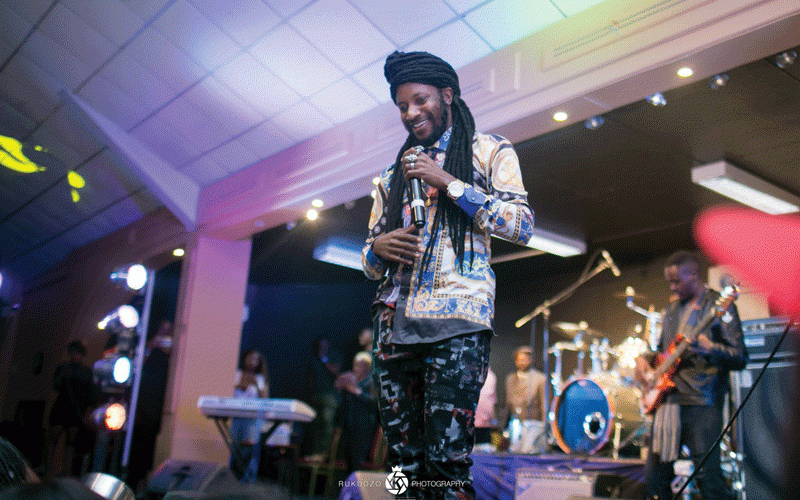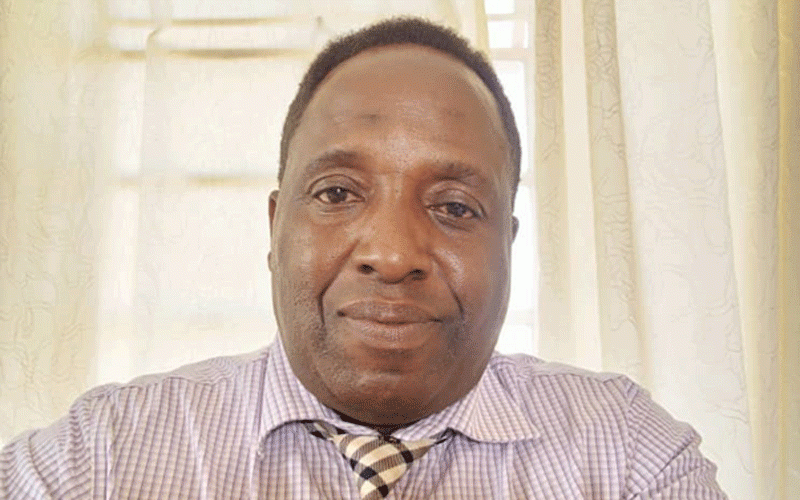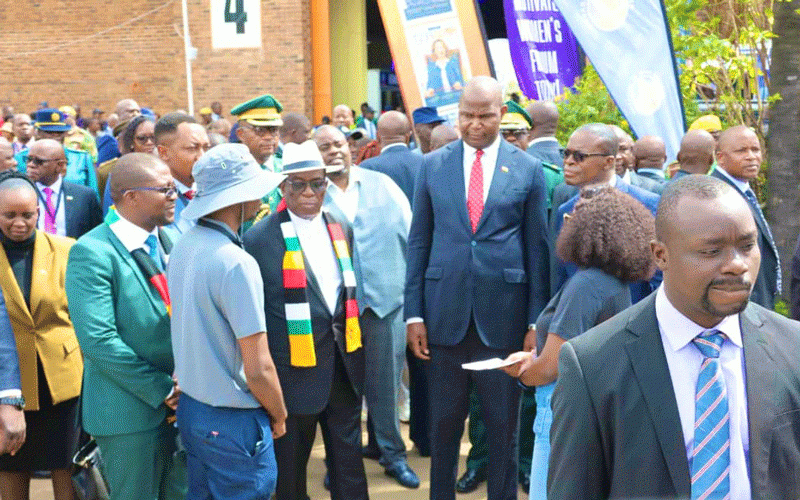
Zimbabwean dancehall icon Winky D has once again delivered a powerful social commentary with his latest release, Propaganda, dropped this Friday.
Staying true to his modus operandi, the artist uses his music to address the prevailing political and social climate, offering a voice of reason and resistance.
The song is off the star-studded Dub Style Riddim, a project produced by Dynamq, a South Sudanese Reggae-Dancehall artist, DJ, producer, and founder of Dynamq Sounds, and distributed by Bob Marley’s Tuff Gong International.
Winky D joins a line-up of international reggae artists, including Anthony B, Busy Signal, Sud Sound System, Mariah Ngoma, Skillinjah, Rebellion The Recaller, Real McKoy, and Loyal Flames.
The song, a raw commentary on the manipulation of information, hits hard, and laced on a reggae beat, a familiar pulse of resistance, rendered on the three mimute, 17 seconds song.
Winky D's lyrics paint a vivid picture of a media landscape twisted by the powerful, where truth is a casualty of political agendas. He sing of "voices silenced," and "stories spun," of a society where the lines between fact and fiction blurred.
For many listeners, the song resonates deeply. Feeling the weight of biased narratives, the frustration of being denied access to unfiltered information. Winky D's words are a mirror, reflecting their own experiences.
The reggae sound, a genre born from the struggles of marginalised communities, provides the perfect backdrop. Its rhythmic sway carries the weight of historical injustices, the echoes of calls for justice from the streets of Kingston to the townships of Zimbabwe.
- Religion: Overcoming doubt and unbelief
- Winky D dominates Trevor’s In Conversation
- Religion: Overcoming doubt and unbelief
- Winky D dominates Trevor’s In Conversation
Keep Reading
Reggae music has always been a vehicle for social commentary, and Winky D masterfully used it to deliver a potent message. Reggae is a sound that's both familiar and effective, carrying the weight of history and the urgency of the present.
Winky D's unfortunate history with the polarised media offers another layer of meaning to the song.
His battles with state controlled media, the times his music was deemed "too political" and effectively muted, are well-documented. Propaganda feels like a defiant response, a refusal to be silenced.
Winky D’s lyrics are sharp and incisive, cutting through the noise of political rhetoric. He speaks truth to power, exposing the mechanisms of manipulation with clarity and conviction.
He delves into media capture and the political economy of the media in Zimbabwe. A complex landscape shaped by historical factors, government policies, ownership structures, and economic conditions.
The government maintains significant control over major media outlets, particularly the Zimbabwe Broadcasting Corporation (ZBC) for television and radio, and the Zimbabwe Newspapers Group (Zimpapers) for print media.
This control allows the government to influence the narrative, promote its agenda, and limit critical voices. State-owned media have often been accused of partisan reporting, favouring the ruling Zanu PF party.
There is a private media sector, however, the growth and operation of private media have been significantly constrained by restrictive media laws and government interference.
French philosopher Michel Foucault's concepts of power, knowledge, and discourse offer a powerful framework for analysing the intricate relationships between media, politics, and economics.
Discourse is analysed as a system of thought. Foucault emphasises that discourse is more than just language; it's a system of thoughts, practices, and institutions that shapes how we understand the world.
This system defines the objects of our knowledge and, therefore, what we can think about, how we think, and when we think.
Thomas Jefferson, a prominent American statesman, expressed a profound belief in the crucial role of a free press in a democratic society.
Thomas Jefferson writes from Paris to Edward Carrington, whom Jefferson sent as a delegate to the Continental Congress from 1786 to 1788, on the importance of a free press to keep government in check.
He concludes that if he had to choose between “a government without newspapers or newspapers without a government, I should not hesitate a moment to prefer the latter”.
Jefferson recognised that an informed citizenry is essential for a functioning republic.
Newspapers, in his time, were the primary means of disseminating information to the public.
He believed that a free press could act as a watchdog, holding the government accountable for its actions.
He feared the potential for government corruption and tyranny. A free press, he argued, could expose wrongdoing and prevent abuses of power.
By providing transparency, newspapers could ensure that the government remained responsive to the needs of the people.
In a climate where access to unbiased information is increasingly crucial, Propaganda serves as a vital wake-up call. It's a song that encourages critical thinking and empowers listeners to question the narratives they are presented with.
Propaganda is more than just a song; it's a social commentary, a call to action, and a testament to the enduring power of music to speak truth to power.










